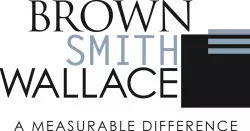The Protecting Americans from Tax Hikes Act of 2015 (PATH Act) made permanent many popular but previously temporary tax breaks for individuals and businesses. The PATH Act also enhanced many incentives. These enhancements should not be overlooked in tax planning both for 2016 and future years. Some of the enhancements are discussed here. If you have any questions about these or other tax breaks in the PATH Act, please contact our office.
Business incentives
Code Sec. 179 expensing. The PATH Act made permanent the Code Sec. 179 $500,000 dollar limit and $2 million investment limit. For tax years beginning after 2015 these amounts are adjusted for inflation. The IRS has announced that 2016 will not see any increase in the $500,000 limit and only a slight rise to $2,010,000 for the investment limit.
Enhancements, for tax years only beginning after 2015, include allowing the Code Sec. 179 expense deduction for air conditioning and heating units. Additionally, the $250,000 limitation on the amount of Code Sec. 179 property that can be attributable to qualified real property is eliminated, with a corresponding removal of carryforwards of disallowed amounts.
Bonus depreciation. Under the PATH Act, bonus depreciation is available at its 50 percent level starting in 2015 through 2017. However, the bonus rate is reduced from 50 percent to 40 percent for property placed in service in 2018 and to 30 percent for property placed in service in 2019, after which it sunsets (ending after 2020, for certain noncommercial aircraft and property with a longer production period). Effective for property placed in service after 2015, bonus depreciation for qualified leasehold improvement property is replaced with a bonus depreciation deduction for "qualified improvement property" made to the interior portion of a nonresidential building whether or not the building is subject to a lease; and the improvement need not be made more than three years after the building was placed in service.
Research tax credit. The PATH Act made permanent the research tax credit. Effective for tax years beginning after December 31, 2015, a qualified small business during a tax year may elect to apply a portion of its research credit against the 6.2 percent payroll tax imposed on the employer's wage payments to employees. The research credit is also added to the list of general business credit components designated as "specified credits" that may offset alternative minimum tax (AMT) as well as regular tax.
Work Opportunity Tax Credit. The Work Opportunity Tax Credit (WOTC) is extended through December 31, 2019 by the PATH Act. The WOTC also is expanded and made available to employers that hire individuals who are qualified long-term unemployment recipients beginning work for the employer after December 31, 2015.
Film/TV/live theatrical productions. The special expensing provision for qualified film and television productions is expanded by the PATH Act to apply to qualified live theatrical productions. These productions must commence after December 31, 2015, and before January 1, 2017.
Incentives for individuals
Exclusion from gross income of discharges of acquisition indebtedness on principal residences. The PATH Act extended for two additional years (through December 31, 2016) the exclusion from gross income for discharges of qualified principal residence indebtedness. The provision also provided for an exclusion from gross income in the case of those taxpayers whose qualified principal residence indebtedness was discharged on or after January 1, 2017, if the discharge was pursuant to a binding written agreement entered into prior to January 1, 2017.
Code Sec. 25C credit. The PATH Act extended and modified the popular Code Sec. 25C credit for energy-efficient improvements. For property placed in service after December 31, 2015, the standards for energy efficient building envelope components are modified to meet new conservation criteria.
Teachers' classroom expense deduction. The $250 annual limit for the now permanent above-the-line deduction for classroom expenses under the PATH Act is inflation-adjusted starting in 2016. Due to low inflation, the $250 limit will not rise for 2016. Starting in 2016, expenses for professional development are added to the list of eligible expenses.
The content of this article is intended to provide a general guide to the subject matter. Specialist advice should be sought about your specific circumstances.

